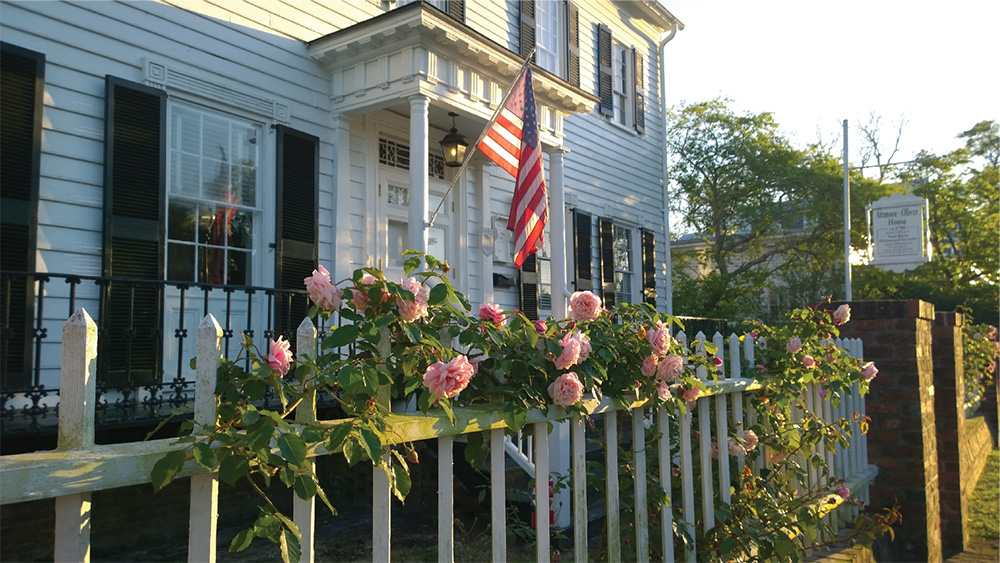On the Altar of Freedom
by Claudia Houston, Historian, New Bern Historical Society
A young man born in New Bern became an orphan under unusual circumstances. He went to sea, wrote poetry, read extensively, sailed the world, corresponded with and joined what was to become a famous regiment in the Civil War, documenting his journey along the way. Who was this man?
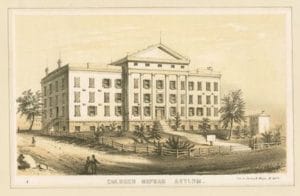
James Henry Gooding was born on August 28, 1838, in New Bern to an enslaved woman, Sarah Tucker, and James M. Gooding, a white merchant who was not Sarah’s owner. When James Henry turned eight, his father purchased his freedom and took the young child with his manumission papers to the Colored Orphan Asylum in New York City, a prominent school and boarding house run primarily by Quaker women. In 1851, Mr. Gooding purchased Sarah’s freedom and they were wed.
Henry, as he wished to be called, loved to read and was a good student. Gooding received a classical education and became a skillful writer. After three years at the orphanage he ventured to the whaling capital of the world, New Bedford, Massachusetts. A Black man could earn a higher wage on a ship than on land and on July 18, 1856, at the age of seventeen, Gooding obtained his Seaman’s Protection Certificate, verifying that he was a citizen of the United States. Gooding inflated his age to nineteen and falsely listed his birthplace as Troy, New York. This may have been designed to protect him from the Fugitive Slave Act, as Henry was less likely to be interrogated if he was documented as a free northern Black.
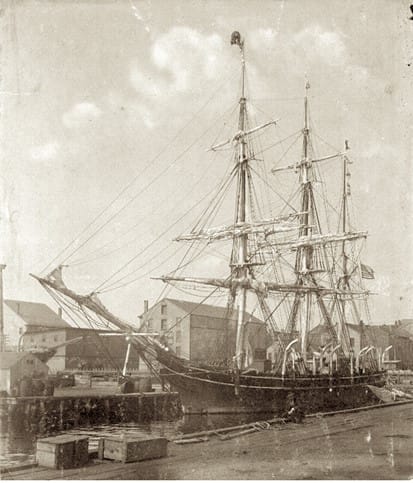
Gooding signed on with the Sunbeam, a three-masted whaling ship. His job as cook gave him time to indulge in his passions: reading and writing poetry. When the Sunbeam returned to port in April 1860, Gooding had earned over $360. He made two more whaling trips to earn enough money to propose to his sweetheart. Upon his return, Gooding and Ellen Louisa Allen were in New Bedford on September 28, 1862.
The Civil War had begun, and Blacks trying to enlist to fight for the Union were repeatedly rebuffed. In July 1862, Congress passed two laws officially allowing Black men to serve. However, it was not until after the Emancipation Proclamation in January 1863 that the War Department allowed Massachusetts Governor John Andrew to recruit Black troops. In February 1863, James Henry Gooding enlisted in the newly created 54th Massachusetts Infantry Regiment. By May he was headed to South Carolina.
Henry’s detailed and eloquent writings of his experiences with the 54th Massachusetts were published in weekly letters to the Mercury, a local New Bedford newspaper. During July 1863, his participation in and description of the assault on Fort Wagner, the Confederate fort that guarded the entrance to Charleston Harbor, depicted in the 1989 movie Glory. That battle, in which half of the Regiment was killed, helped to dispel the prevailing notion that Blacks would run away and not fight. Gooding wrote “… a regiment of white men gave us three cheers as we were passing them. It shows that we did our duty as men should.” It was the slow beginning of acceptance of Blacks in the Army.
In September 1863, Henry wrote an eloquent letter to President Abraham Lincoln complaining of the disparity in pay between Black and white soldiers and the fact that Blacks were being used as laborers rather than trained infantry. He wrote, “Are we Soldiers or are we Labourers? You caution the Rebel Chieftain, that the United States knows no distinction in her Soldiers. She insists on having all her Soldiers of whatever creed or Color, to be treated according to the usages of War. Now if the United States exacts uniformity of treatment of her Soldiers from the insurgents, would it not be well and consistent to set the example herself by paying all her Soldiers alike?”
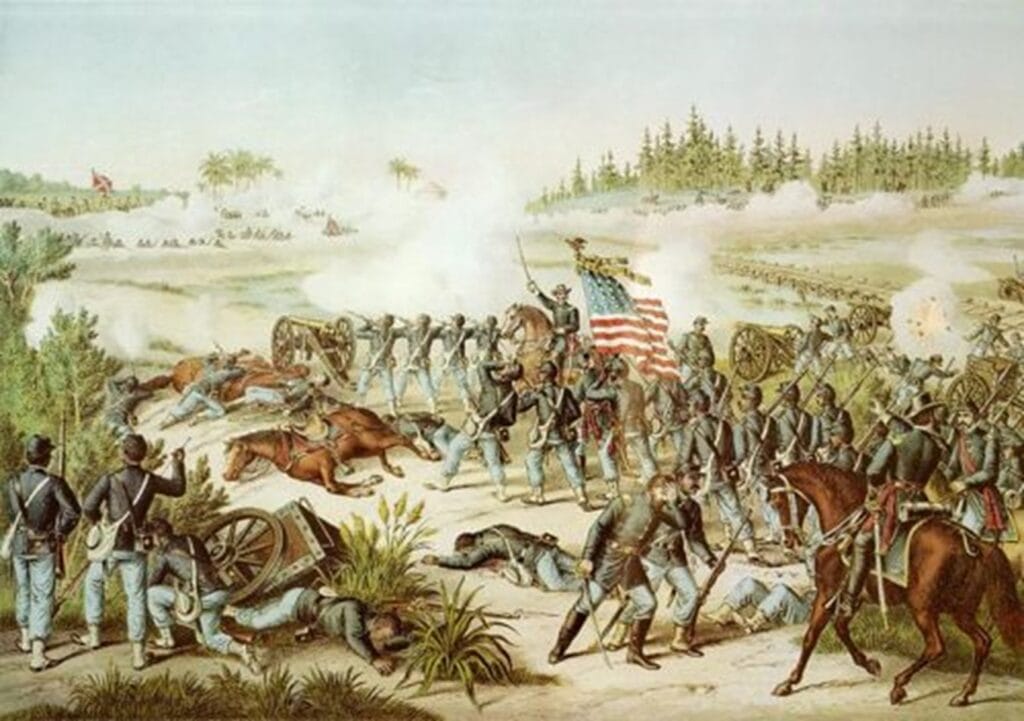
During February 1864, the 54th Massachusetts fought at the Battle of Olustee, Florida. Henry was wounded and sent to Andersonville prison in Georgia. Notorious for its brutal mistreatment of prisoners, he was beaten severely and died on July 19, 1864. Gooding was buried at the Andersonville National Cemetery. Unknown to him at the time of his death, Congress had passed a law in June 1864 granting equal pay to Black soldiers.
James Henry Gooding led a remarkable life. His eloquent writings serve as a testament to tenacity, courage, and determination. His letters and poems are printed in the book On the Altar of Freedom; A Black Soldier’s Civil War Letters from the Front, edited by Virginia M Adams, University of Massachusetts Press, 1991. The original of his letter to Abraham Lincoln is in the National Archives.
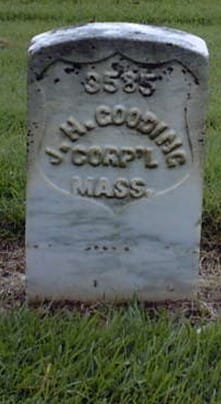
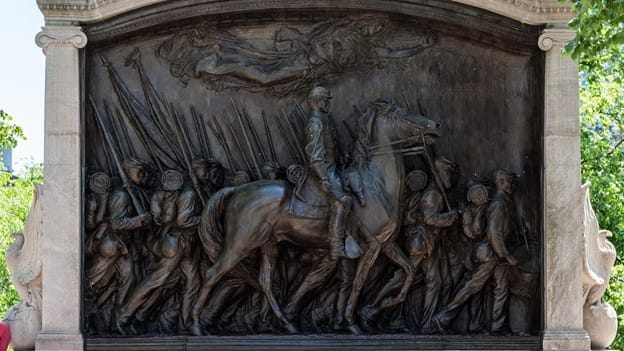
For more information regarding James Henry Gooding, check out this link at the National Park Service: https://www.nps.gov/people/j-h-gooding.htm.

